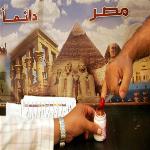22 November 2010

Photo: AP
Once they cast their ballots, voters in Egypt dip their fingers in ink to indicate that they have voted (file photo)
The Egyptian government has rejected calls to allow international monitoring of parliamentary elections to be held next Sunday. The government says foreign oversight would infringe on state sovereignty. However, there are indications that authorities are also not keen on domestic monitors.
During voting for the Shura Council, Egypt's upper house of Parliament, in June, the Egyptian Organization for Human Rights was allowed to accredit monitors.? But as the group's secretary general, Hafez Abu Saada, recently explained, it was an exercise in futility.
"We asked for 150 badges for our observers. They gave us 20, and the 20 should observe the elections in a governorate where there is no election in it. So, it was a joke."
Activists claims election process rife with problems
Abu Saada is among the most prominent members of Egypt's struggling civil society movement, trying to monitor a process that independent and opposition forces contend is riddled with corruption, intimidation and fraud.
The accusations include stuffing of ballot boxes, vote rigging, using outdated voter rolls, including names of people long since dead. He also says Egypt's oversight committee fails to include members who are fully independent of the government.
Others argue that harassment ranges from the government not giving aspiring candidates the documents needed to prove their eligibility to physical intimidation of candidates and their supporters. The Muslim Brotherhood, which is banned as a political party, but which fields candidates as independents, reports that hundreds of its campaigners were arrested recently, with several wounded in skirmishes with police.
Government maintains elections will be fair
Egypt's President Hosni Mubarak, who has led the ruling party for nearly 30 years, recently restated his trust in the fairness of the elections.
During an address to his National Democratic Party kicking off the campaign season, Mubarak said the upcoming parliamentary elections will be determined by the voters, and will enhance Egypt's democratic practices.
His supporters agree. Pro-government newspaper publisher Karam Gabr dismissed the idea that international monitors are needed to ensure that the democratic process goes forward.
Some cite "sensitivity" to foreign observers
Gabr, the head of the Rose al Youssef Institution, says foreign monitoring raises sensitivities in Egypt, which he says has had democracy for hundreds of years -- a point many historians might question. Gabr says Egypt has no need for international observers.
The argument is one repeated by government officials -- that it is a matter of national pride that Egypt can monitor itself. Following U.S. government concerns earlier this month about the process, the Egyptian Foreign Ministry said the United States is acting like an "overseer," showing no respect for the country's sovereignty.
"Sensitivity" argument questioned
Hafez Abu Saada of the Egyptian Organization of Human Rights says that argument is absurd. He points out that developed countries like the United States and Britain, as well as developing states such as Ghana, Nigeria and Sudan, welcome international observers.
"They think we keep our sovereignty and we refuse the intervention in our policy, which is accepted in economic issues, accepted from the [World] Bank, accepted from the International [Monetary]Fund, and they do not accept it in elections and observing elections?"
Prospect for "media as monitor" bleak
With international observers ruled out and civil society groups stymied, some opposition forces say they are hoping that the media can help shed light on the electoral process. But recently, the government temporarily suspended the licenses of several satellite television channels. Independent journalists have been fired and some prominent bloggers, long a focus of government concern, have been jailed.